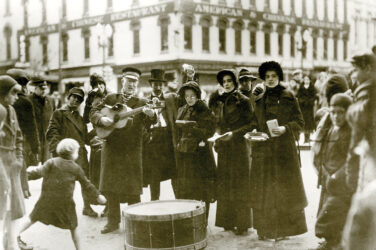by Bryant Erickson
 More than 800 employees in the Central Territory have received vital training in anti-human trafficking over the last two years through the Caseworker Certification Program (CCP).
More than 800 employees in the Central Territory have received vital training in anti-human trafficking over the last two years through the Caseworker Certification Program (CCP).
CCP provides Salvation Army employees and officers engaged in direct social services with foundational training that supports their role in developing a positive helping relationship with those we serve. Its nine modules cover topics ranging from Salvation Army history to building essential skills, ethics, and working with diverse populations.
One crucial topic in the specialized populations module is human trafficking. The objectives are for personnel to learn to define sexual trafficking, labor trafficking, and the commercial exploitation of children; become aware of red flags that may help a worker identify trafficked individuals; and know how to initiate the appropriate referral process for any identified human trafficking survivors.
“The reality is that people who are exploited and trafficked regularly engage with others in the greater community, including our corps,” said Elyse Dobney, territorial social justice and city mission director and anti-trafficking contact person. “We have had multiple scenarios in which survivors have sought support from our existing programs and services. Given this, our representatives must be equipped to identify survivors and know how to engage and offer support safely.”
The motivation for involvement is biblically rooted. Deuteronomy 10:17-18 reminds us God is deeply
and passionately concerned about those who are suffering and executes justice for them, while Micah 6:8 instructs us to walk humbly, act justly and love mercy.
The Salvation Army answered the call to fight for social justice very early in its history. For example, it
was instrumental in leading the campaign to bring about the 1885 Criminal Law Amendment Act to
increase the age of consent from 13 to 16 years in England. Also, by opening its Lights in Darkest England match factory in 1891, the Army created safer working conditions and paid decent wages to its workers. Today, the Army continues to act justly through its anti-trafficking efforts.
As with the introduction of the module on anti-human trafficking, the territorial social services department continues to develop training for frontline personnel. The latest two modules focus on pastoral care in the context of social services. Content experts for this topic include Dr. David Hodge, Arizona State University; Dr. Philip Hong, University of Georgia; Gloria Woodland, Trinity Western University; and several officer “champions” of pastoral care delivery in the territory.




